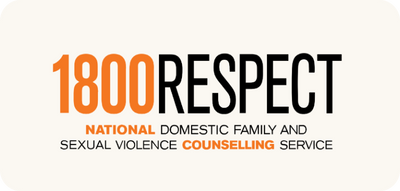Understanding relationships and how you can help
Seeing a loved one in a problematic relationship or hurting after a relationship breakdown can be painful, frustrating, confronting, and in some cases, extremely concerning.
It can be difficult to know what to do, what to say, or if you can even help.
As challenging as it might be, staying connected and offering your support is really important if and when they decide to reach out.
If you’re concerned about a loved one’s physical or emotional safety ...
You may want to reach out to the Domestic and Family Violence Helpline on 1800 737 732 for guidance. If life is in danger, call 000.
Offering support
When a loved one confides in you about their relationship problems, it likely took a lot of courage for them to do so.
While you may feel protective or want to jump in with solutions, the best thing you can do is listen with an open mind, offer support without judgement or criticism, and ask them how to best help.
If your loved one is in or has come out of an unhealthy relationship, they may be experiencing low self-esteem and may:
- Stop prioritising and practising self-care
- Not feel capable of ‘surviving’ outside of the relationship
- Consider going back to the relationship out of fear
- Lose confidence and motivation
- Feel unworthy of love and fulfilment.
“One of the best things you can do to offer support is to build them up. Let them know they matter and that you care about them.”
Here are a few more things to keep in mind when you’re trying to help a loved one in or recently out of an unhealthy relationship:
- Listen to what they really need
It’s in our nature to want to fix things or take pain away, but more often than not, people really just want to be heard and have their feelings validated.
Instead of giving ‘solutions’, offering your opinion, or saying things like, ‘At least you have the rest of your life to find someone,’ try phrases like:
- ‘I can understand why you’re so upset.’
- ‘You must be exhausted from dealing with this.’
- 'This must be really difficult for you.'
If it feels appropriate, you can ask:
‘Would you like me to help you come up with a few ideas for what to do or would you like me to just keep listening?’
By asking the other person what they need, they’ll be able to guide you to the type of support they’re actually looking for.
- Be patient
- Help them prioritise their wellbeing
It’s also a good idea to be mindful of showing empathy, not sympathy.
Below is a short animation that does a great job explaining why.
Taking action
If it seems like your loved one is struggling to cope or you’re worried about their mental health, you can encourage them to reach out for professional support.
Keep in mind that this might involve having a difficult conversation with them. Try to approach the subject with care, respecting their feelings and trying to avoid putting pressure on them if they're not ready.
- What happens if they shut down?
Even if it feels useless, let them know that you'll be there when they’re ready.
By reminding them of your presence and support, you’re setting up a safe environment for them to reach out when the time is right for them.
It may take a long time for them to turn to you, but if possible - keep reminding them that you’re there.
- If they accept your support, you can offer to help them by:
- Researching professional support options in their area
- Scheduling an initial appointment for them
- Accompanying them to their first appointment
- Listening to them and encouraging them throughout the process.
What to do if you're concerned about a loved one's safety
If you’re worried that your loved one might be experiencing domestic and family violence and are concerned for their safety, you can always call the Domestic and Family Violence Helpline on 1800 737 732 for guidance. If life is in danger, call 000.
Remember, abuse isn’t always physical and it can escalate quickly.
If you're feeling helpless about the situation, or are worried about breaching your loved one’s confidentiality, Lifeline is always here for you.
Remember, looking after others takes a lot out of you. It's okay to take time to make sure you're prioritsing and practising your own self-care.
Click here to download, save, or print our relationships fact sheet.







